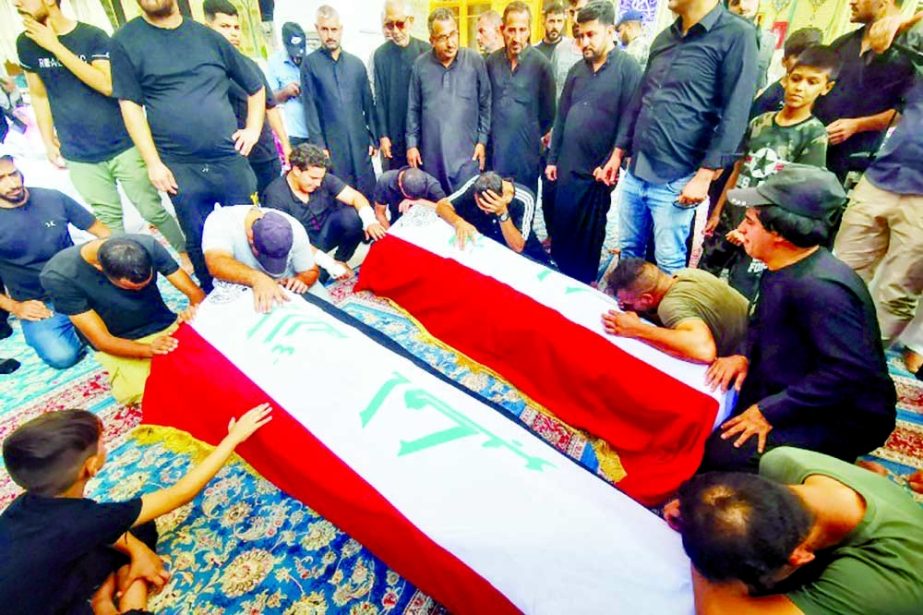
AFP :
After ten months of high political tension, the crisis in Iraq has erupted. Following the resignation of Shia cleric Muqtada al-Sadr and the subsequent takeover of the Presidential Palace and the government, clashes between Shia groups themselves, mostly backed by Iran, as well as violence by security forces, have left at least 30 people dead on Tuesday.
According to security officials, the clashes were reportedly between fighters from al-Sadr’s Peace Brigades (the Saraya al-Salam militia) and members of Iraq’s security forces, who are tasked with protecting the Green Zone, where most government buildings and diplomatic missions are located.
Sadr loyalists, who had already been occupying the parliament building for weeks, also stormed a government building that was for some time the palace of ousted ex-dictator Saddam Hussein. This assault has led to violent clashes between young Sadr loyalists and supporters of pro-Iranian Shiite militias, leaving hundreds injured.
As a consequence of this situation and condemning the violence among civilians, the Shiite cleric has begun a hunger strike “until the violence stops” in the country, according to one of his spokesmen. He has also urged the cleric’s demonstrators to leave the Green Zone in less than an hour, he said on state television, asking for “forgiveness” from citizens.
In a brief statement, one of the Sadrist leaders, Hasan al-Azari, reported that “His Eminence” had decreed “a hunger strike until the violence and the use of weapons ceases because kicking out the corrupt does not give anyone, whoever they are, a justification for the use of violence”. However, demonstrations continue unabated despite the curfew, further intensifying a crisis that so far has not found a solution.
Al-Sadr claimed victory almost a year ago in the October elections, winning a total of 73 seats. His victory ushered in a new political situation that seemed to move away from Iranian influences and towards US diplomacy. The al-Sadr government was determined to root out the political corruption that had plagued the country, as were other Sunni and Kurdish parties in Iraq, with whom it could have formed a coalition government that never came to fruition.
In an attempt to curb the influence of al-Sadr’s politics, the pro-Iranian forces, who currently control the highly corrupt judiciary, decreed that a two-thirds majority in parliament was required to form a new government, a situation that al-Sadr’s members failed to achieve.
The conglomeration of different political parties, both religious and ethnic, made it difficult to reach a political consensus. Thus, voters of other political formations, including the Shiite cleric’s own followers, dissatisfied with his ineffectiveness in a complex situation, demonstrated for weeks, even staging sit-ins in the vicinity of the Green Zone in Baghdad.
This latest episode of violence is by no means the first in the Green Zone since al-Sadr’s victory. The political paralysis caused hundreds of protesters to take to the streets, demanding early elections and staging violent episodes that directly attacked the Zone’s facilities.
The United Nations mission in Iraq, UNAMI (United Nations Assistance Mission in Iraq), has called on all citizens to remain calm and cooperate with all security forces in order to avoid a situation that they have described as “unstoppable” at a time when “the survival of the state is at stake”.
In the press release, the organisation also calls on politicians to “work to reduce tension and re-establish dialogue as the only means of resolving differences” in the face of a climate of political and social instability that threatens, once again, to bring chaos to the country.

